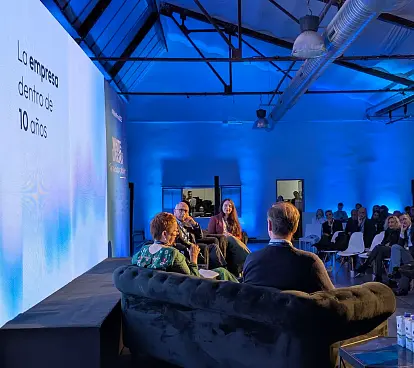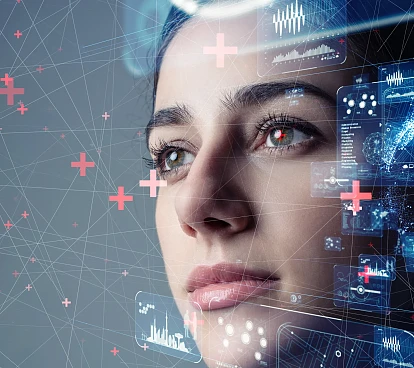
Insights from Joaquín Garralda: Navigating Sustainability Challenges for Businesses
July 12, 2023
We had the opportunity to speak with Joaquín Garralda, a Sustainability Professor at IE University, whose wealth of experience and unique insights shed light on tackling the sustainability challenges faced by businesses.
Can you tell us about your professional journey in the field of sustainability?
My academic background is in General Management/Strategy at a business school - IE University. This required me to always consider the long term and interpret events from that perspective. This led me to recognize the relevance of sustainability many years ago.
To provide a timeframe, around the year 2000, I was involved in the launch of the Global Compact in Spain on behalf of IE University. I also joined the ethical committee of the first Spanish ethical fund, which allowed me to be closely involved with the development of ESG information agencies and the evolution of Sustainable Investment in Spain. In 2009, I participated in the foundation of Spainsif, an organization that aims to promote socially responsible investment, and I currently serve as its president representing IE University. Through this platform, I am closely connected to the evolving European regulation on sustainability, which has made significant progress since 2018.
What do you think technology companies can do to improve the planet's sustainability and people's well-being?
Technology companies play a crucial role in addressing the environmental and social challenges we face. We cannot continue with the same growth model that relies on fossil fuels. Additionally, the digitalization driven by technology companies is essential from both an environmental and social perspective.
How can we, as companies, help our clients in their sustainability strategies?
Firstly, by promoting the first objective of the Taxonomy created by the European Union, which is the mitigation of CO2 emissions. This involves developing programs that improve energy efficiency across economic activities. Assuming this objective is already well integrated within companies, there is ample opportunity in the second objective, which is transitioning to a low-carbon economy. Here, technology plays a crucial role. It's not just about improving efficiency but also innovating in productive approaches and business models that consider different energy sources and eliminate harmful products and raw materials to address climate change.
For example, the cement industry, as it currently operates, faces extreme difficulties in reducing its CO2 emissions due to the chemical conditions of its production and the high temperatures required in cement kilns. To achieve the European goal of carbon neutrality by 2050, significant innovations are needed in cement production and utilization for construction. Additionally, the management and reuse of discarded construction materials need to align with a circular economy, which is the fourth objective of the EU.
What do you consider the best way to communicate our commitment to sustainability and avoid greenwashing?
In a study conducted by the European Commission in 2020, it was found that 53.3% of environmental claims made by the most relevant European production companies were vague, misleading, or unsubstantiated. Furthermore, the establishment of a recognizable "green" label with rigorous certifications faces the challenge of a wide variety of existing "green" labels (the study identified around 230 green labels of different origins, including sectorial, national, regional, and NGO labels, which differ significantly in solidity and reliability). This lack of standardization undermines consumer confidence in the real impact, leading to widespread skepticism.
To address this situation, the European Union is developing common sustainability standards that companies must report on, facilitating comparability. Similarly, transparency requirements are being regulated for institutional investors - banks, insurance companies, asset managers, ESG information providers, and investment advisors - who may be complicit, intentionally or unintentionally, in the dissemination of misleading messages from the companies in which they invest or lend. The goal is, once again, to increase the final investor's trust in the sustainability messages of the companies where they invest their savings.
Therefore, the collection of data according to accepted standards and its intelligent use for decision-making is the foundation of credible communication that avoids criticism of greenwashing.
How can we empower everyone within an organization to engage in sustainability initiatives?
Undoubtedly, through the commitment and leadership of top management, with formalized or implicit messages based on credible narratives that align with the company's values.
Could you give us an example of a sustainability-related initiative that you find particularly interesting?
For many companies, the most important challenge in the near future is managing the environmental and social impact throughout their value chains. This includes suppliers, end consumers, logistics, and distribution. To address this challenge, alliances with these related companies or consumers are the solution. In this regard, an especially interesting example is the partnership between Inditex and BASF, the major German chemical company, which has allowed them to develop a detergent that reduces the release of microfibers in laundry by up to 80%. This not only helps avoid the problem of microplastics in the ocean but also prolongs the lifespan of clothing.
Our latest news
Interested in learning more about how we are constantly adapting to the new digital frontier?

Event
November 24, 2025
White Mirror 2025: the blank mirror reflecting what is yet to come

Insight
February 5, 2025
Pharmaceutical tenders: top 5 obstacles and how to overcome them

Tech Insight
January 13, 2025
How to bring your application closer to everyone

Insight
December 10, 2024
Groundbreaking technologies today that will reshape the innovation landscape in 2025
